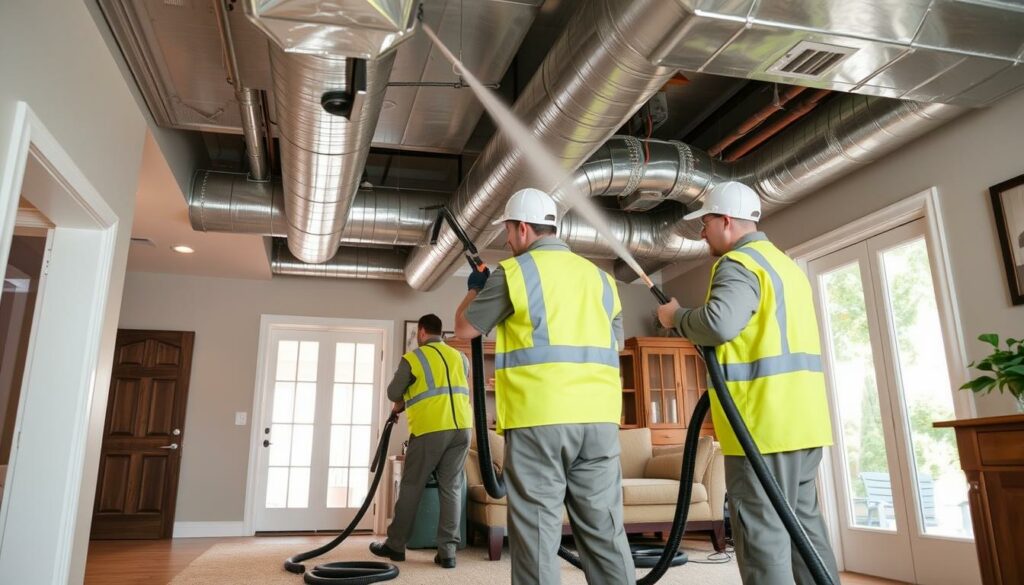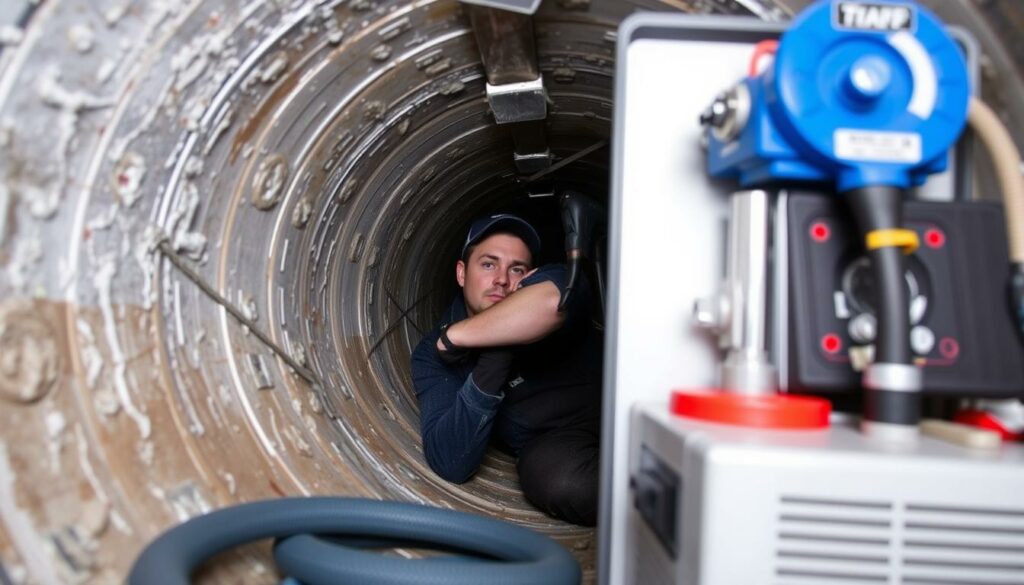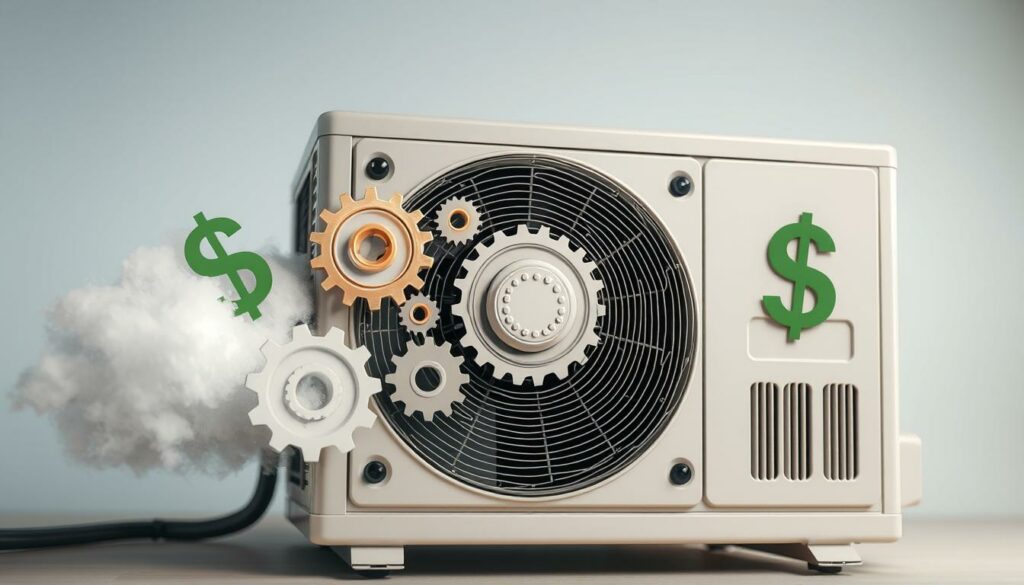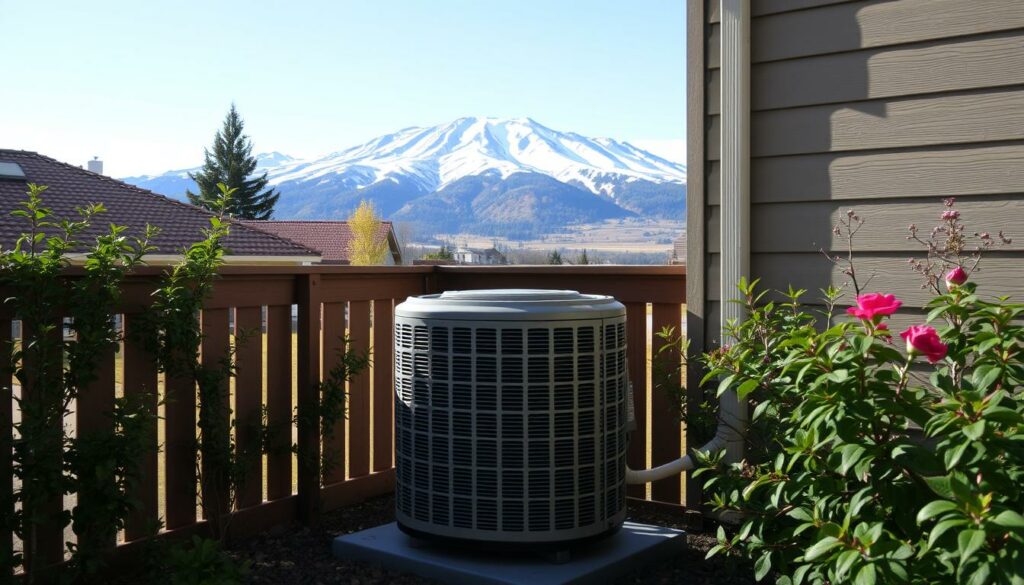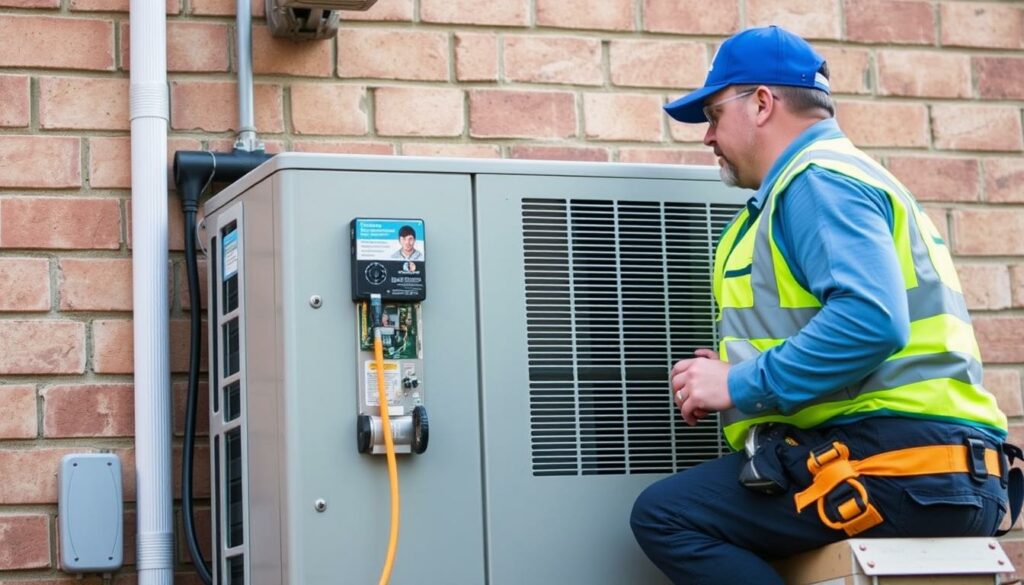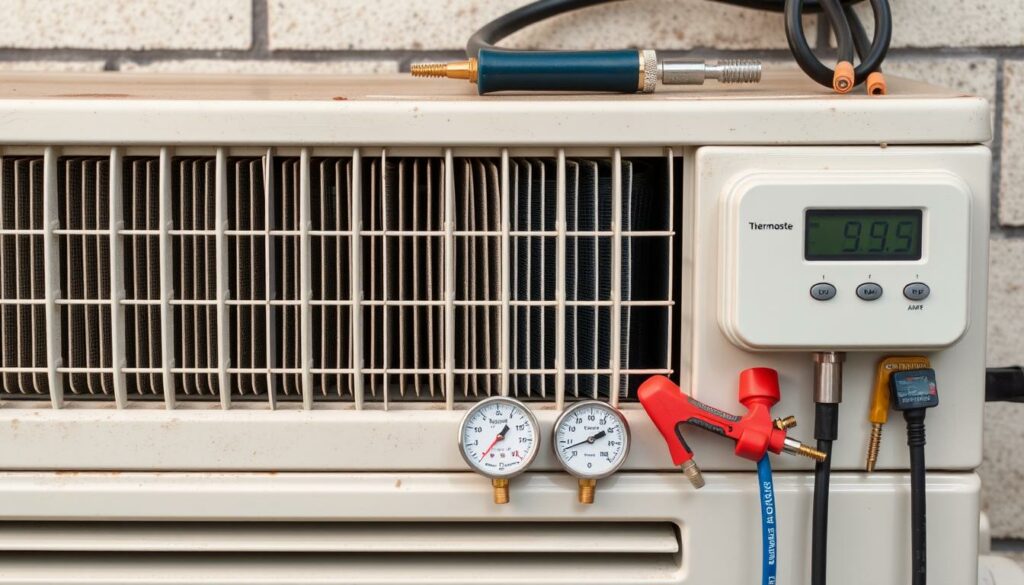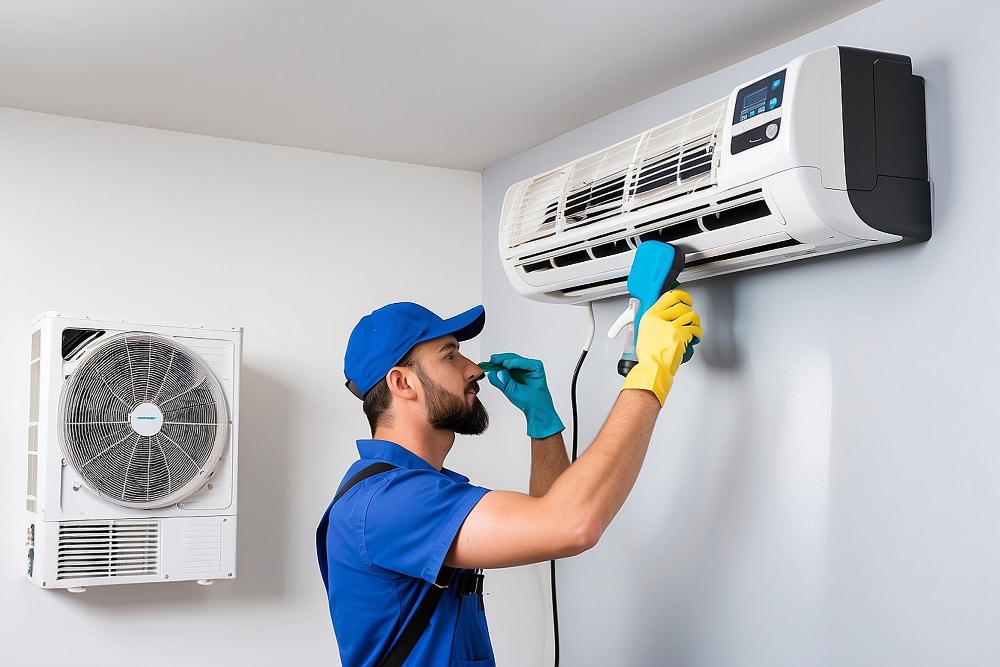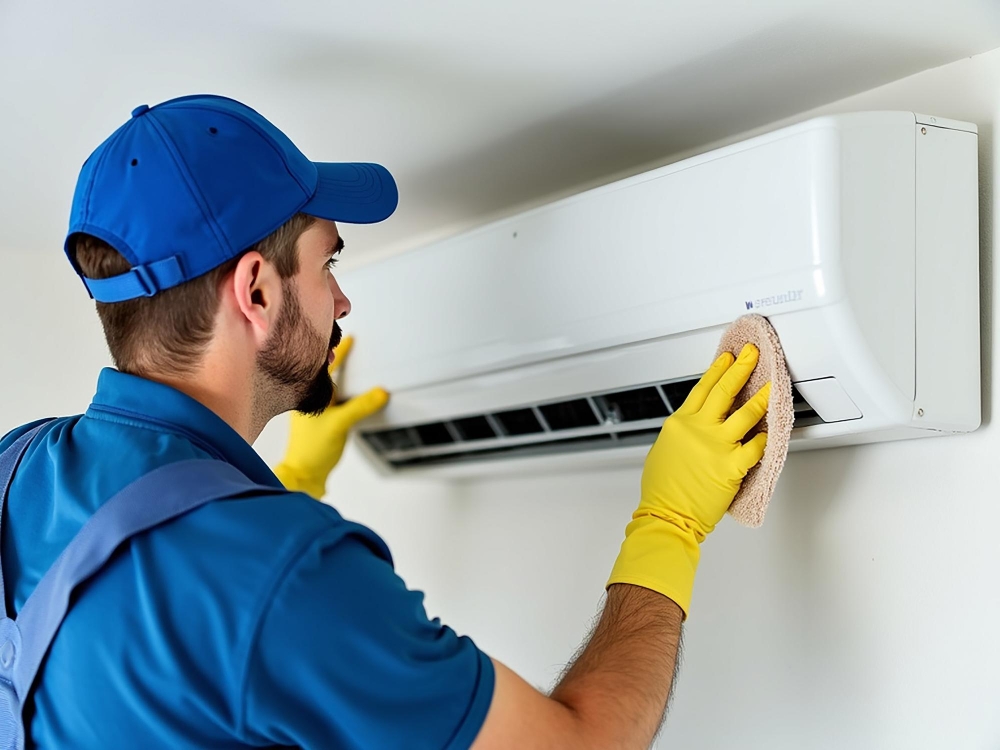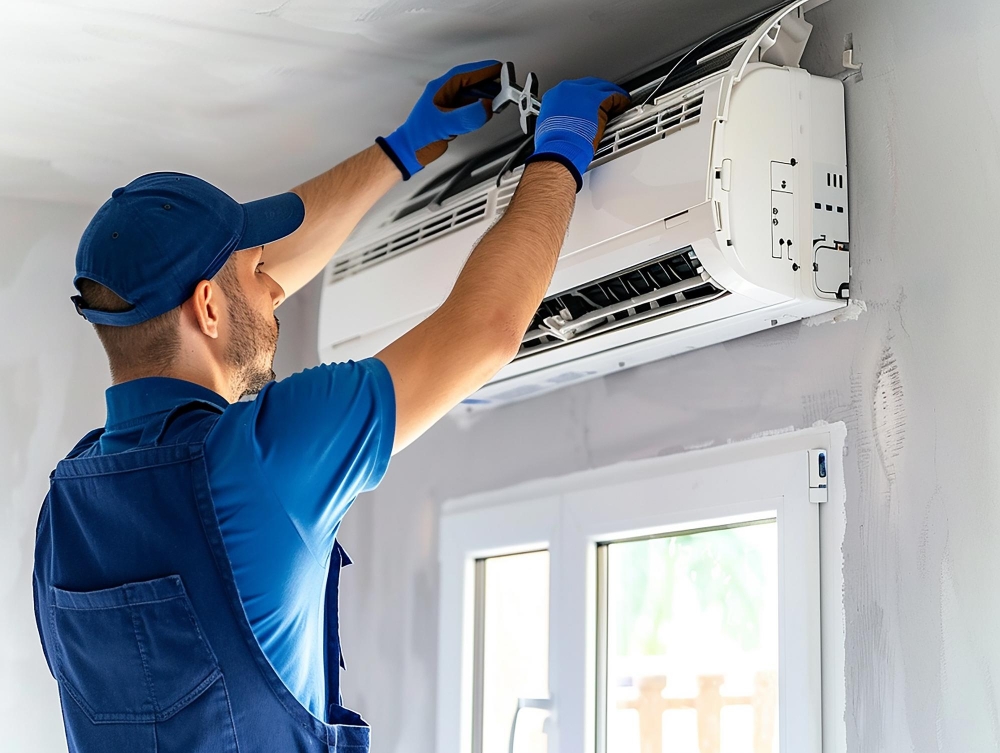Planning Ahead? The Best Time of Year to Get a New AC in Lake Elsinore
As temperatures rise in Lake Elsinore, a good air conditioning system is key for comfort. We know how important a smooth and affordable AC installation is.
Planning for a new AC early can really help. We'll look at the best time to get a new AC in Lake Elsinore. We'll consider the local weather and other important factors.
Knowing about the local climate and installation factors helps us prepare for your new AC. We aim to meet your needs.
Key Takeaways
- Understanding the importance of planning ahead for AC installation
- Exploring the ideal time for AC installation in Lake Elsinore
- Considering local climate and installation factors
- Preparing for a smooth and cost-effective installation process
- Ensuring a reliable air conditioning system for comfort and well-being
Why Timing Matters for Your AC Installation
Knowing when to install an AC system can save you money and improve efficiency. It's not just about getting the job done. It's about doing it at the right time for the best results.
Cost Considerations Throughout the Year
The cost of installing an AC system changes with the seasons. In summer, demand is high, and prices go up. But, installing in the fall or spring can save you money. Contractors might offer deals during these times to keep their work steady.
Planning ahead can help you save. Installing during the off-season can lower the total cost. You'll get a more accurate AC installation cost estimate.
Contractor Availability and Scheduling
The availability of professional AC installers near me changes with the seasons. In summer, they're busier, and it's harder to schedule. This can be a problem, making it hard to get an AC when you need it most.
Installing in the off-season means better scheduling and faster service. This is great for those needing AC before summer hits.
"Scheduling your AC installation during the off-season can lead to significant cost savings and more flexible scheduling options."
The Best Time of Year to Install an AC in Lake Elsinore!
Finding the right time to get a new AC in Lake Elsinore is key for comfort and saving money. The city's weather changes a lot, with hot summers and cool winters. So, when you install your AC is very important.
Fall Installation Benefits (October-November)
Fall, from October to November, is a great time to install an AC. The weather is mild, and it's not too hot or cold. This makes it easier for HVAC experts to work without the summer rush.
Faster Scheduling: Since fewer people need ACs in the fall, you can get an appointment quicker. This means your installation might happen faster.
Potential Cost Savings: HVAC companies might offer deals in the off-season. This can help you save money on your AC installation.
Winter Installation Advantages (December-February)
Winter is also a good time for AC installation in Lake Elsinore. The cooler weather helps contractors work better, and there's less demand. This means you might find better prices.
- Less rush and faster installation times
- Potential for lower costs due to off-season discounts
- Preparation for the upcoming summer season
Spring Considerations (March-May)
Spring can be a good time for AC installation, but there are things to think about. As it gets warmer, more people need ACs. This can make it harder to get an appointment and might raise prices.
| Season | Benefits | Considerations |
| Fall (Oct-Nov) | Faster scheduling, potential cost savings | Mild weather, easier installation |
| Winter (Dec-Feb) | Less rush, potential discounts, preparation for summer | Cooler temperatures, easier for contractors |
| Spring (Mar-May) | Preparation for peak summer usage | Increasing temperatures, potential peak season rates |
Knowing the pros and cons of each season helps Lake Elsinore residents make smart choices. This way, they can stay cool and save money at the same time.
Factors to Consider When Planning Your AC Installation
Planning an AC installation in Lake Elsinore involves several important factors. These elements help homeowners make smart choices. They ensure the best cooling solution for their homes.
Local Climate Patterns in Southern California
Southern California has hot summers and mild winters. Lake Elsinore gets very hot in summer. Knowing the local climate is key to picking the right AC unit size and type. The right system will cool your home better and use less energy.
Budget and Seasonal Promotions
Your budget is a big part of AC installation. Seasonal promotions and discounts can save you money. Keep an eye out for these deals to get the best value for your budget.
Energy Efficiency and Rebate Opportunities
Energy efficiency is crucial for AC units. An efficient system cuts down on utility bills and helps the environment. Many places offer rebates for energy-saving ACs, which can lower the upfront cost.
Emergency vs. Planned Replacements
Knowing when to replace your AC is important. Planned replacements let you shop around and schedule the install. This can save you money and stress. Emergency replacements are more expensive and stressful because they're urgent.
By thinking about these factors, homeowners in Lake Elsinore can get a great AC installation. Whether it's a replacement or a new system, being informed makes the process easier and more successful.
What to Expect During the AC Installation Process
Knowing what happens during AC installation helps homeowners get ready for a smooth process. When you choose professional ac installers near me, you get a detailed and organized installation.
Pre-Installation Assessment and Planning
Our team starts by checking your home's cooling needs. We look at your home's size, insulation, windows, and ductwork. This helps us find the best AC system for you. We also talk about your budget and what you want, so we can offer a custom solution.
We make a detailed plan and timeline for the installation. This includes an ac installation cost estimate that shows all the costs. This way, you know what to expect and can plan your budget without surprises.
Installation Timeline and Home Preparation
The installation usually takes 4 to 8 hours, depending on the job. Our team works fast to not disrupt your day. We suggest clearing the area around the installation site to help us work better.
On installation day, our team comes ready with everything needed. We install the AC system carefully, making sure everything is connected and working right.
Post-Installation Testing and Verification
After installing, we test the AC system to make sure it's working well. We check for leaks, ensure good airflow, and test the thermostat. This makes sure everything is as it should be.
We also teach you how to use your new AC system. We give tips on maintenance and solving common problems. We want you to be happy with your new AC system, so we offer a warranty and support.
By knowing the ac installation timeline and what to expect, homeowners can prepare better. This way, you can enjoy your new AC system sooner.
Conclusion
Planning ahead for a new AC installation in Lake Elsinore can make a big difference.
At Magic's Heating & Air, we believe timing is everything — especially when it comes to installing a new AC system. If you're in Lake Elsinore, the best time to schedule your installation is during the cooler months, when demand is lower and our team can offer faster service and flexible scheduling. Whether you're planning ahead for summer or replacing an outdated system, we’re here to make the process smooth and stress-free.
Thinking about installing a new AC in Lake Elsinore? Let Magic’s HVAC help you beat the heat before it starts — with expert advice, trusted service, and year-round comfort you can count on.
Need professional AC installation in Lake Elsinore? Call Magic's Heating & Air at 951-225-5705 or email magicsheatingandair@yahoo.com. We're excited to help you make your home comfortable and energy-efficient.
FAQ
What is the best time of year to install an AC in Lake Elsinore?
The best time to install an AC is in the fall (October-November) or winter (December-February). The weather is cooler, and contractors are busier. This means faster scheduling and possibly lower costs.
How long does an AC installation typically take?
The time it takes to install an AC varies. It depends on the job's complexity and our contractors' availability. A standard installation can take a few hours to a few days. We'll give you a detailed timeline before we start.
What factors affect the cost of AC installation in Lake Elsinore?
Several factors influence AC installation costs. These include the system's type and size, installation complexity, and materials needed. We also look at seasonal promotions, energy efficiency, and rebates to help you save.
Do you offer any promotions or discounts for AC installation?
Yes, we have seasonal promotions and discounts for AC installation. We also help find rebates and incentives for energy-efficient systems. Contact us to learn about our current offers.
How can I prepare my home for AC installation?
To prepare your home, clear the area around the installation site. Make sure you have access to the site. Protect your furniture and flooring. Our team will guide you during the pre-installation assessment.
What is the process for AC installation, and what can I expect?
Our AC installation process includes a pre-installation assessment, installation, and post-installation testing. We assess your cooling needs and provide a detailed plan and timeline. We ensure the system works correctly and efficiently.
Are your AC installers certified and experienced?
Yes, our AC installers are certified, experienced, and trained. They provide top-notch HVAC services in Lake Elsinore. We keep our team updated with the latest technologies and best practices for a smooth installation.
